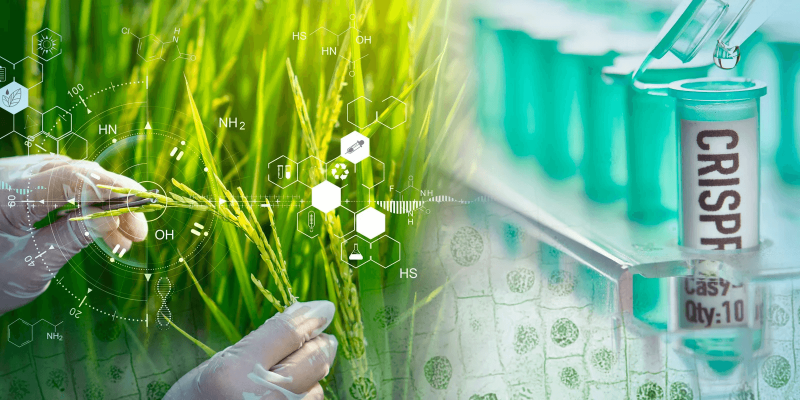With 47 votes in favour to 31 against and 4 abstentions, a right-leaning majority agreed to set two categories of NGTs: gene-edited plants that are “indistinguishable” from those obtained through conventional breeding (NGT 1) – which would be exempted from the requirements of the GMO legislation – and those with more “complex modifications” (NGT 2) – which would follow stricter rules.
In line with the Commission’s proposal, presented in July, MEPs agreed that NGT seeds must be labelled accordingly but that there would be no mandatory labelling at consumer level for the NGT 1 products.
Lawmakers also voted to keep all NGTs out of organic production – claiming their compatibility “requires further attention” – and to prevent EU countries from banning them in their territory.
While the EU executive decided to leave the question of patents unanswered, MEPs voted to introduce a full ban on patents for NGTs “to avoid legal uncertainties, increased costs and new dependencies for farmers and breeders”.
However, the EU organics association IFOAM said in a press release that addressing the issue of patents “with an amendment and a report” was “wishful thinking”.
Despite the proposed new rules for NGTs, the overarching legal framework for biotechnologies has remained unchanged, i.e. the 1998 directive on the legal protection of biotechnological interventions.
“It’s just the beginning”
“[NGTs] are a battle that will continue for months to come,” French socialist MEP Christophe Cleargeau, shadow rapporteur on the file, told Euractiv after the committee meeting, adding that the vote was “just the beginning”.
The European Parliament is expected to vote on the proposed law in plenary on 6 February, but it is uncertain whether the Parliament and the Council will be able to strike a deal before the end of the legislature.
EU countries are still discussing it under the Belgian Presidency of the EU council.
The biggest rift between member states is over the patentability of NGT-based products, according to sources close to the matter.
The EU Council will “not be able to conclude the dossier” before the end of the legislative mandate, but it could “make progress” on some issues, Spanish agriculture minister Luis Planas said before the AGRIFISH meeting on Tuesday.
On the same day, Polish Agriculture Minister Czesław Siekierski insisted that Poland – one of the member states seen as key to unlocking the dossier – does not want “to allow the patenting of NGT 1 plants”.
Greens and NGOs react
At the ENVI meeting, Green MEP Martin Hausling accused the Commission of “not bearing in mind consumer rights”, adding that there is “no guarantee” that NGT plants would not pose a lower risk for human health and the environment.
Many NGOs also sounded the alarm about the potential risks of NGTs, which they claim should be regulated as GMOs.
Greenpeace said in a press release that the law could violate EU principles “because rules on safety checks, labelling and traceability are removed or watered down”.
“[The law] could also violate the fundamental rights of farmers to property and the freedom to run a business,” reads the press statement, “because it does not provide sufficient protection against the contamination of crops with new GMOs”.
IFOAM called for a delay of the plenary vote, claiming the committee vote left “many issues unsolved” – such as measures to ensure coexistence between organic and conventional farming.































